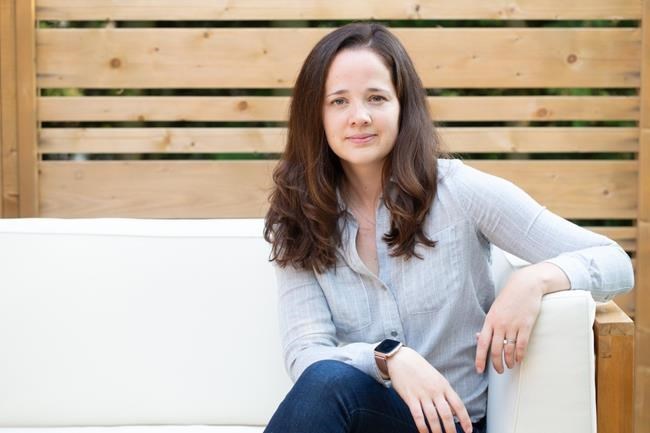TORONTO — While Anthony Kirby is grateful for the stability his job as a grocery store supervisor has afforded him, especially throughout the pandemic, the idea of self-employment has become increasingly alluring.
The 33-year-old who lives in Abbotsford, B.C., has been moonlighting as a financial adviser outside of his day job for the past two years, and has now put an exit plan in place so he can invest fully in his own business.
Many Canadians who lost their jobs during the pandemic have turned to self-employment to try and make up for lost income. As part of what’s being called “The Great Resignation,” some employed professionals are now choosing that route.
“I’m on a mission to spread financial literacy and education to as many people as I can,” Kirby said. “At my current job, I’m essentially trading my time for money and giving my time for somebody else to fulfil their dreams. It’s something that I’ve always kind of inherently known and I’ve always wanted to start doing something for myself.”
Another upside to self-employment for Kirby is there’s no cap to his earnings.
“The level that I can obtain is only limited by the level of business that I can do. If I’m in someone’s employ, I am limited by their pay scale, such as in the case of the union job which I’m in, or by somebody else’s decision,” he said.
Toronto-based entrepreneur coach Lisa Jeffs said she’s seen an influx of people who are reassessing their career amid the pandemic. Alongside taking a career break or pursuing a new job, many people are interested in self-employment.
Before striking out on their own, Jeffs said it’s important for people to understand their values, their work ethic, and what they want their life to look like.
Emily Unruh, a 36-year-old licensed real estate salesperson in Fonthill, Ont., left her full-time non-profit job in June so that she could have more control over her earnings and schedule. While Unruh has joined Royal Lepage NRC Realty, Brokerage as part of The Lockyer Real Estate Team, she’s still considered self-employed and responsible for her own income.
“My [former] job was essentially a Monday to Friday, 9 to 5, and I actually wanted something with less structure,” Unruh said.
Unruh and her husband, who is a digital media entrepreneur, both highly value flexibility and wanted the opportunity to travel with their 16 month-old daughter. While their plans were halted due to COVID-19, they eventually plan to take a six-month vacation somewhere when it’s safe to do so, along with other travel, which her new role would allow her to do.
“One consideration I had when I decided to quit was that I had to commit to working enough to at least match what I was making,” Unruh said. “I had to consider this was a very different work environment. I have to be able to motivate myself to get work done. It’s not as simple as clocking in and clocking out.”
Understanding what self-employment truly entails is key before making the leap, Jeffs said. There is a carefree, freedom-based lifestyle perpetuated on social media that can be very appealing to many people. Self-employed professionals can absolutely obtain that, Jeffs said, but it takes a lot of resourcefulness and grit.
“I think it’s critical to actually talk to entrepreneurs or self-employed people in the industry that you want to be in to get a very clear understanding of what you’re getting into and if it aligns with your values or not,” Jeffs said.
For people ready to make that transition, they need to first figure out their living expenses and how long they can cover those expenses if business doesn’t come immediately.
“If they don’t do that work, and they’re a single person household, it can put them into a state of panic and cause them to shut down to where they’re not making any movements in their business because they’re too much in fear,” Jeffs said.
Depending on people’s savings, she added, they’ll have to choose whether it’s a better move to dive fully into self-employment, which can light a fire under some people, or create an exit strategy, such as nine months to one year, to fully plan and prepare for the transition.
“I used to work in the school board and one of the reasons I started my own business is because I have a value of autonomy. I also have a top value of freedom, which most entrepreneurs I would say have, and my risk tolerance is high,” said Jeffs.
“If someone has a very low risk tolerance and they value stability and have the need to feel safe, then understanding that is important before going into self-employment."
This report by The Canadian Press was first published July 27, 2021.
Leah Golob, The Canadian Press



